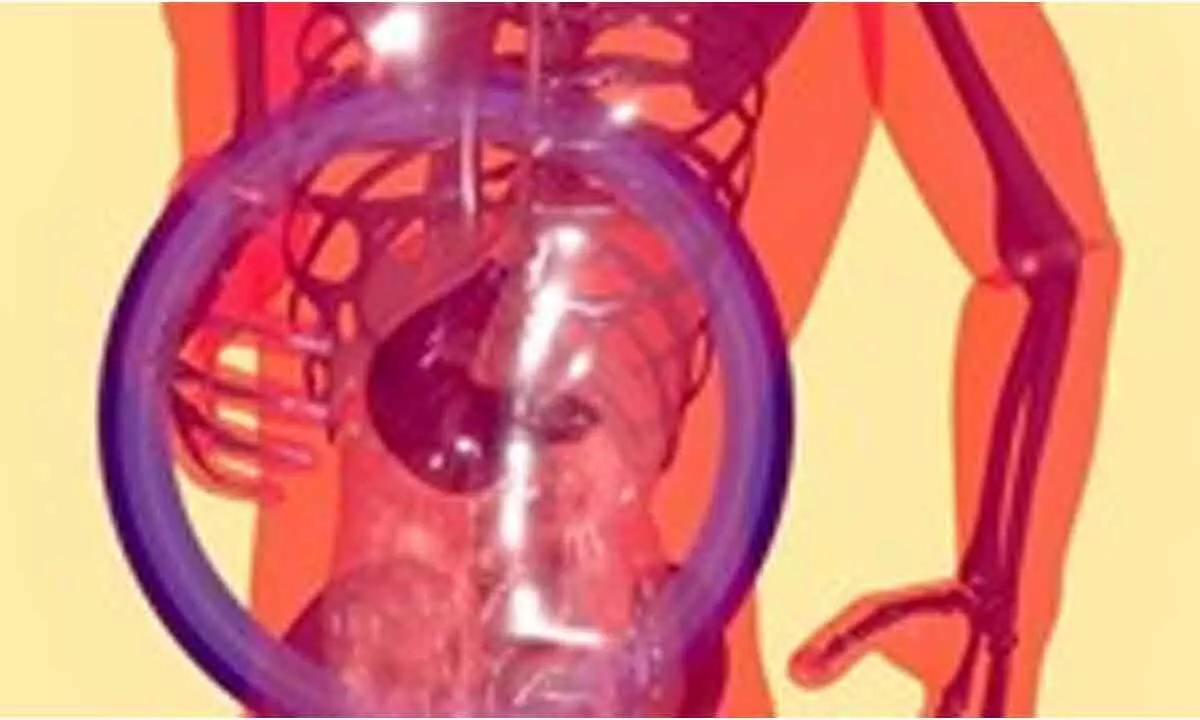New cell therapy may help treat advanced liver disease
Share :

A new type of cell therapy helped dramatically reduce serious liver-related complications that could lead to hospitalisation and death in patients with liver scarring, or cirrhosis.
London : A new type of cell therapy helped dramatically reduce serious liver-related complications that could lead to hospitalisation and death in patients with liver scarring, or cirrhosis.
The innovative new approach, by researchers at the University of Edinburgh in the UK, uses macrophage immune cells -- the cells associated with tissue repair -- derived from the patient's own cells to treat cirrhosis.
It was tested in a clinical study involving 50 patients in Scotland with cirrhosis caused by a variety of different factors, such as alcohol, fatty-liver disease and viral hepatitis.
The data, presented at the American Association for the Study of Liver Diseases (AASLD) conference (2023) in Boston, shows the treatment helped dramatically reduce serious liver-related complications during this one-year study.
These complications can lead to hospitalisation and death. "We are encouraged by the new results. This trial shows the treatment is well tolerated, and is associated with reducing the clinical complications in patients with end-stage liver disease," said Professor Stuart Forbes, a clinical hepatologist, from the varsity who led the trial.
In the trial, 26 patients received the macrophage treatment, and 24 patients in the control group received standard medical care only. After one year, there were no liver-related clinical events in any of the 26 patients treated with macrophages. In the control group, four patients out of the 24 developed liver-related severe adverse events, and there were three deaths.
Chronic liver diseases and associated cirrhosis is a common and lethal condition that account for approximately one million deaths per year globally. Causes of liver cirrhosis include infections such as hepatitis C, obesity, alcohol excess and some genetic and immune conditions.
The results, published in Nature Medicine, indicate the treatment might help delay the need for a liver transplant, which is currently the only treatment option available to patients with advanced liver disease, but is a highly invasive procedure severely limited by organ availability, patient eligibility and complex aftercare.







